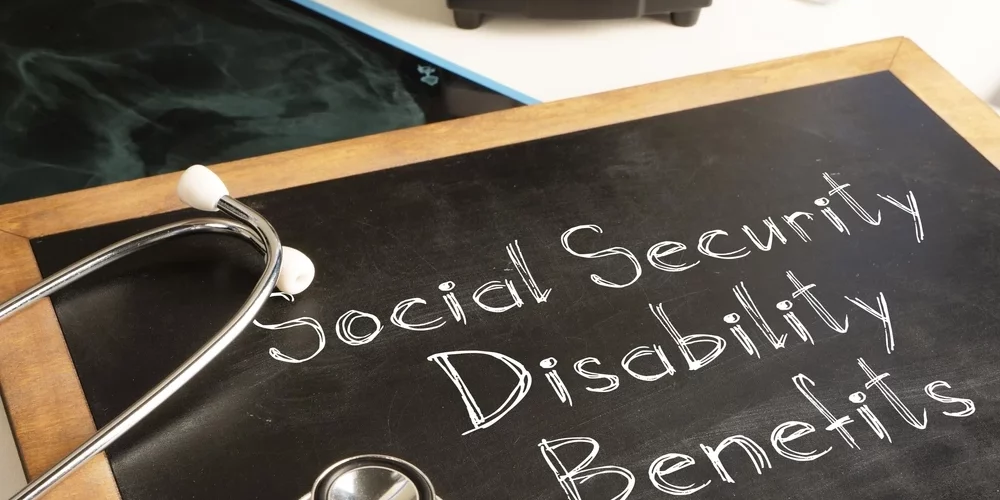Are Learning Disabilities Eligible for Disability Benefits?
July 5, 2022

A learning disability qualifies for (Social Security Disability Insurance) SSDI or (Supplemental Security Income) SSI benefits, based on the intensity of the problem and its implications on a person’s experience. However, it is difficult to get approved for SSDI or SSI, especially if you apply before even consulting an experienced social security disability benefits lawyer.
Can a Child with an IEP Get Social Security?
In children, the SSA examines the limitations of their capacity to gain and apply knowledge, undertake and finish tasks, socialize, handle and operate things, self-care, or health and lifestyle well-being. This evaluation may include looking over a child’s report cards, an Individualized Education Program (IEP) plan, an IQ test, and healthcare practitioners’ patient records.
How Does the SSA Determine Whether a Learning Disability Should Be Compensated?
They do not regard the operational dimensions of minors as for grownups, although remnant attributes can estimate an adult’s operational capacity to operate. IQ scores, academic records, rehabilitation files, boss declarations, Medical Source Statements by prescribing specialists, and doctor assessments might help an adult establish a learning difficulty that prohibits them from full-time work.
Adults with learning disabilities may also be eligible for Social Security disability benefits. However, these applications are typically quite difficult, especially if the applicant has previously worked. The judge may inquire why an individual with a learning disability had previously worked but is now incapable of working. In rare circumstances, a skilled lawyer can claim that previous employers were accommodating your learning disability, but your current employer is reluctant or unable to do so. A learning disability is more relevant for individuals over the age of 50 and even more so over the age of 55 as it affects the ability to vocationally adapt to other work or to learn new skills.
If they categorize your learning disability as an impairment, the SSA will check on the Listing of Impairments. Your leftover functional attributes are used to establish whether you can work full time. When reaching its decision, the SSA considers all debilitating impairments, including a learning disability, spinal ache, or a heart problem.
Although a learning impairment is not as obvious to receive disability benefits as the other developmental disabilities, there are a lot of barriers associated with learning disabilities. These barriers render it hard to find meaningful employment in a full-time role. An individual with a learning handicap, for instance, may struggle to remain on track, respond appropriately to colleagues or clients, or recall work assignments.
SSI Considers All Limitations
Although children’s Social Security applications are more difficult than adult applications, minors below 18 years can get disability payments if they have substantial physical or mental disabilities. If a minor with a developmental disorder has “substantial” (serious) or “extreme” functional deficits that are present for at least a year, they may be eligible for benefits.
Learning impaired kids commonly struggle to stay up academically with their counterparts. It is possible that they need extra time to understand novel approaches and competencies. With standardized exams, children with learning difficulties sometimes score at or below average. Social Security defines a child as disabled if their learning difficulties substantially impede their capacity for learning, performing tasks, to adapt and connecting with peers.
Reasons Why the SSA Can Deny Your Claim
Therefore, just because a diagnosis is on the list does not mean that an individual with the disorder is eligible for benefits. A claimant must meet several rigorous and unique standards. However, even then, the SSA may conclude that your disability is not serious enough to deter you from duties. It is also critical to note that many tools and treatments are ready to aid those with learning disabilities. Persons with dyscalculia, dyslexia, visual-motor deficiencies, or attention deficit disorder may be able to sustain and persist at jobs that do not involve reading, paying attention for long periods, handling numbers, or drawing.
Seek Guidance with Your Disability Claim
Many people with learning disabilities can function efficiently in full-time jobs with little hardship. However, a learning disability could be profound enough to qualify for disability status in certain cases. If you or your close one struggles with such serious limitations, consult our knowledgeable Cincinnati Social Security Disability lawyers at Kapor Davis Law for legal help. We provide tailored advice and counseling from start to end if you apply for a disability benefit or if the SSI dismissed your disability application. For a free consultation, please contact us at (513) 721-2820 immediately.

